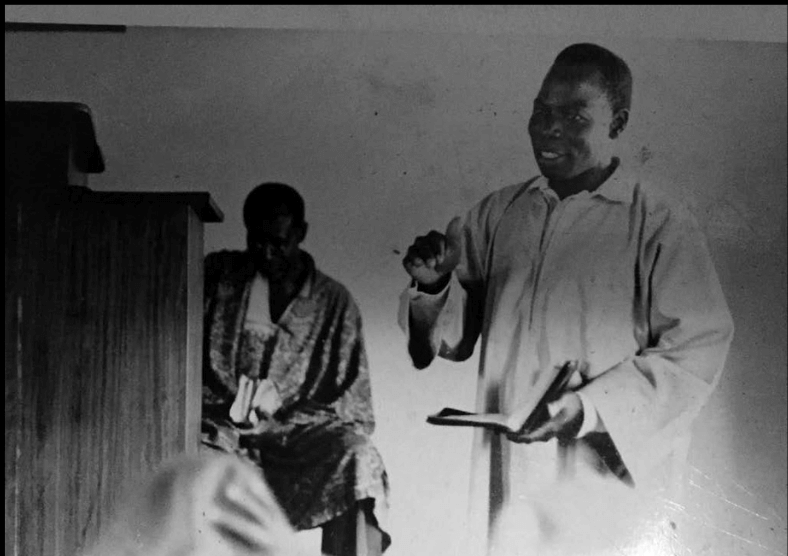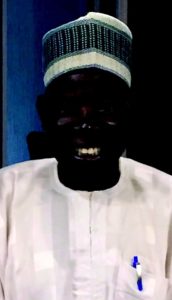Panya Baba: The father of Nigerian Missions
AfriGO Team

 Panya Dabo Baba has been described as one of the fathers of modern African missions and the“greatest missiologist of the ECWA” (Evangelical Church Winning All) denomination. Today, 70 years after his first missionary assignment, he continues to write, preach, lecture and provide counsel in his local church in Karu, Nigeria.
Panya Dabo Baba has been described as one of the fathers of modern African missions and the“greatest missiologist of the ECWA” (Evangelical Church Winning All) denomination. Today, 70 years after his first missionary assignment, he continues to write, preach, lecture and provide counsel in his local church in Karu, Nigeria.
He was born in 1932 to Christian parents. He gave his life to Christ at the age of 13. Four years later, he set out for a neighbouring state to be a missionary among his own people. As he taught the Bible, his missions zeal grew. He was ordained and served in a local church, but his heart was always for those beyond the gospel.
From 1970 to 1988, he led Nigeria’s first indigenous mission organisation, the EMS. During his time, the number of missionaries increased from 194 to 750. Today, the EMS workforce is about 1800, working in 18 countries, and is led by Simon Yako, one of the first Nigerian missionaries to be commissioned by Panya Baba to serve overseas. Baba’s book, Vision Received, Vision Passed On, tells the history of the EMS.
AfriGO spoke to Professor Yusufu Turaki, a lecturer at Jos Evangelical Theology Seminary (JETS) in Nigeria, and a personal friend of Panya Baba’s, to learn more.
The Dictionary of African Christian Biography references Panya Baba’s “ingenious mission strategy.” What was it?
Reaching the unreached. This led him to research unreached people groups in Nigeria. His leadership raised missionary and evangelistic activities tremendously in Nigeria.
What actions of Panya Baba have proven to be foundational for missions in Nigeria and Africa?
Above all, he raised mission awareness among Nigerian churches and denominations generally, and missions agencies across Africa.
Secondly, he was instrumental in forming the Nigeria Evangelical Missions Association (NEMA) and its Nigeria Evangelical Missions Institute (NEMI).
Thirdly, he called for missions and evangelism at international conferences, including the Association of Evangelicals in Africa (AEA), Lausanne Movement, World Evangelical Alliance (WEA) and more.
Lastly, his voice was louder than the modern voices of religious pluralism and cultural relativism.
What were the obstacles he faced in leading EMS?
Panya Baba was the second person to head EMS after Rev. Musa Jibo. His greatest challenges were:
- Churches and denominations in Nigeria lacked mission philosophy and strategy, so mobilization for mission work was difficult. Passion for missions and evangelism was low.
- Lack of trained missionaries from the theological institutions, which is why the Nigeria Evangelical Missions Institute (NEMI) was established in the early 1980s.
- Lack of resources – material and financial – in view of “the harvest is plentiful, but the labourers are few.”
- The challenge from some liberal Christians, churches and denominations due to apathy towards missions and evangelism.
- The rise and power of Islam and African traditional religion and worldviews in Africa after independence in the 1960s.
How did his formative years prepare him for his life calling?
Panya Baba comes from a Gbagyi royal family, so learned the art of leadership at a tender age. This developed his qualities as a mobilizer, counsellor, visionary and encourager.
He was greatly influenced by SIM missionaries early in his Christian life. Institutions such as Karu Bible Training School, Kagoro Bible College, All Nations College in England and Fuller Theological Seminary were instrumental.
He had a high level of motivation, curiosity and doggedness, never giving up until the task is accomplished.
For the young adult reading AfriGO, what has Panya Baba modelled that they must emulate?
Faith, commitment, loyalty, humaneness, simplicity, and humility. His life teaches us all to be eager to learn. He has a strong, consuming and unwavering passion and love for Christ, his Kingdom, missions and evangelism.
For further reading, visit www.nemanigeriamissions.org
Professor Yusufu Turaki served as Provost of the Jos Evangelical Seminary (JETS), and previously served as ECWA Education Director, and ECWA General Secretary when Panya Baba was ECWA EMS Director and ECWA President.
 here.
here.